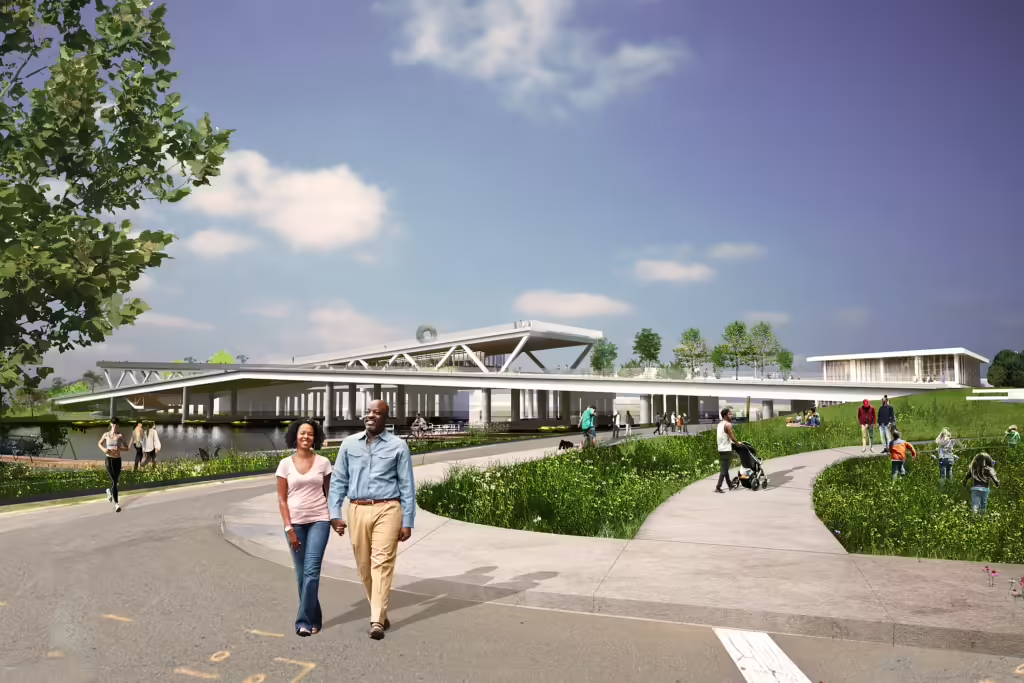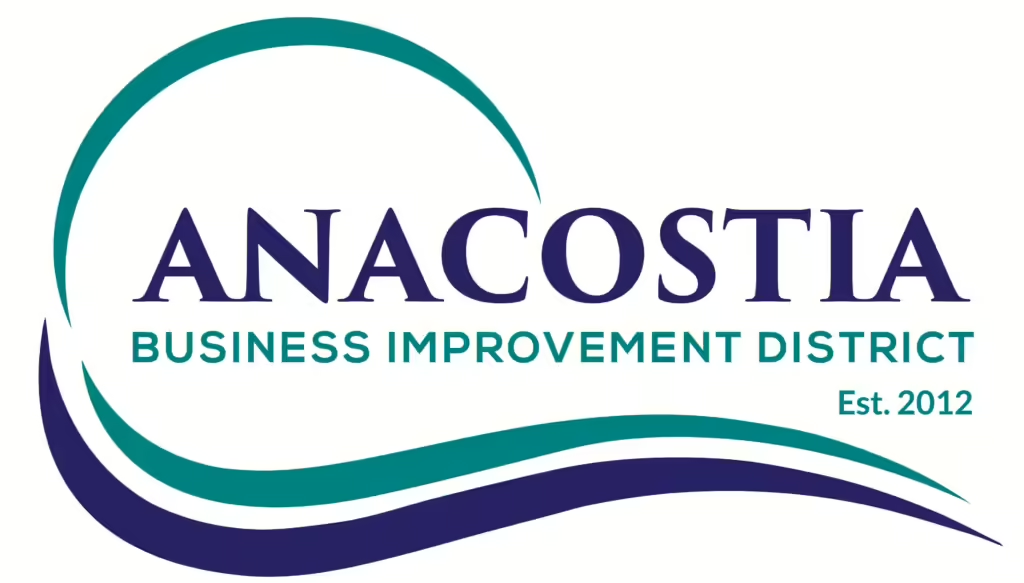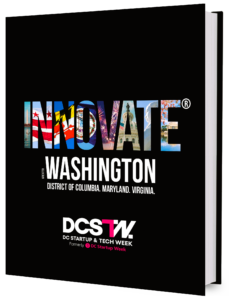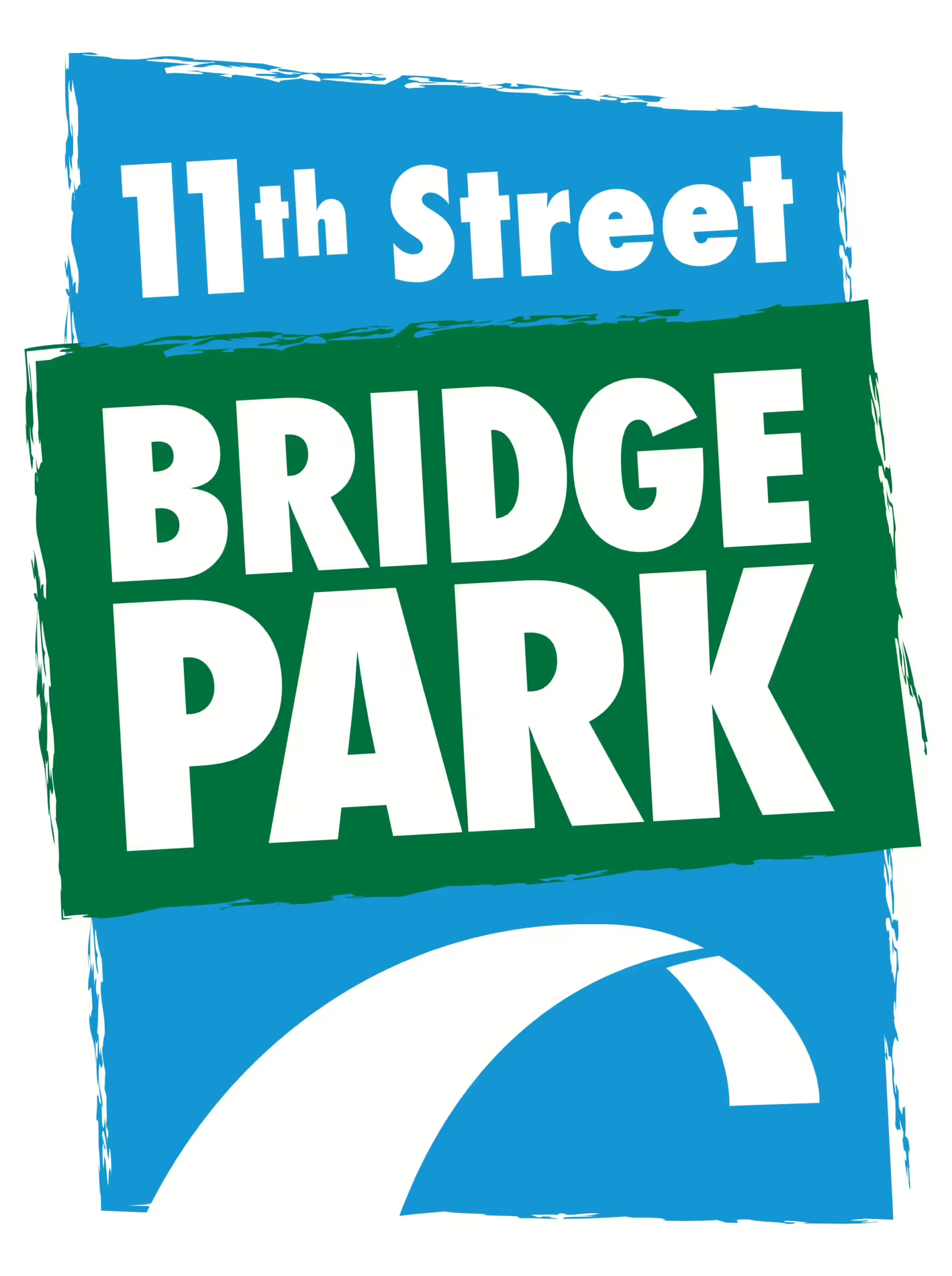Where the echoes of history and the pulse of modern life intersect in Washington, D.C., a groundbreaking project is taking shape: the 11th Street Bridge Park. Led by Scott Kratz, Senior Vice President of the non-profit organization Building Bridges Across The River and partnering with the District Department of Transportation, this innovative endeavor is transforming an old freeway bridge into the city’s first elevated park.
“We are building the 11th Street Bridge Park – a once-in-a-generation new civic space that is the first elevated park in Washington D.C. The Bridge Park will literally and metaphorically bridge long-divided neighborhoods and stitch together the nation’s capital,” says Scott, encapsulating the endeavor’s mission to bridge long-standing divides and foster community resilience.
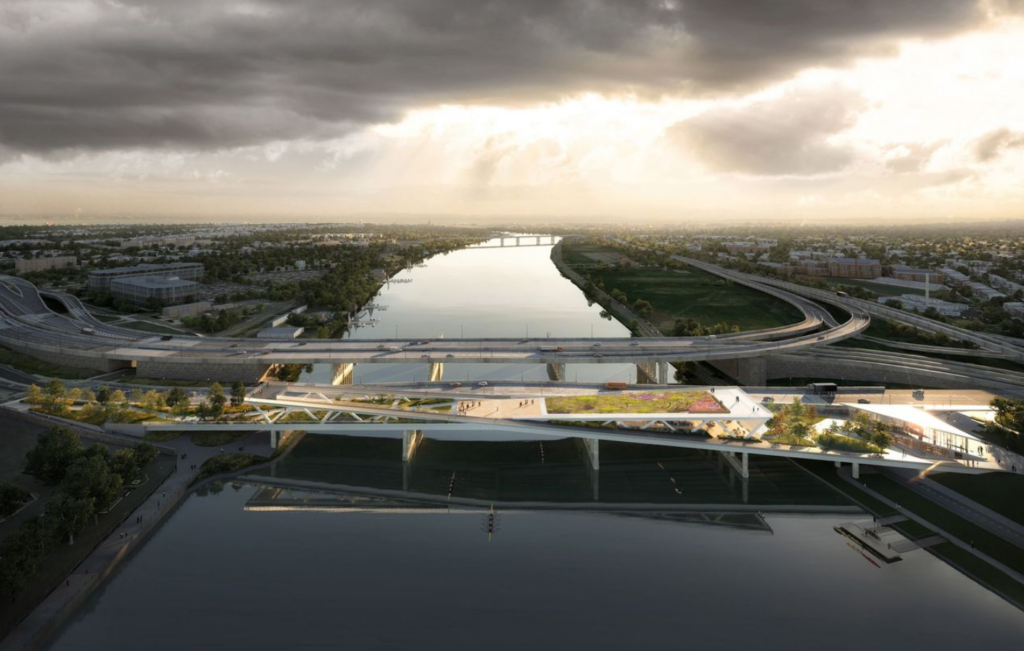
Community at the Core
The 11th Street Bridge Park demonstrates the power of community-driven development. Informed by over 1,000 meetings with local residents, the park is designed to reflect the needs and aspirations of those it serves. “The Bridge Park is for, by, and with the community,” emphasizes Scott. This inclusive approach ensures that the park features amenities that resonate with the community, including an environmental education center, a 250-person outdoor river amphitheater, public art installations, an interactive playspace known as “Mussel Beach,” kayak and canoe launches, and urban agriculture gardens.
Innovating for Equity and Inclusion
At its core, the 11th Street Bridge Park is about more than just creating a beautiful space; it’s about fostering equity and inclusion. The project’s equitable development plan, launched in 2015, is a cornerstone of this mission. The plan includes a Ward 8 Home Buyers Club that has helped 153 renters become homeowners, the establishment of the Douglass Community Land Trust with over 260 permanently affordable units, and workforce training programs that have provided construction jobs to over 250 local residents and supported small businesses and entrepreneurs with technical assistance, loans, and cash grants. “We are extending the life of this original federal investment to create an iconic new space that will bring together residents who otherwise might not connect,” asserts Scott.
A vital aspect of the 11th Street Bridge Park’s mission is its Equitable Development Plan. This comprehensive strategy ensures that long-time residents can remain in their neighborhoods and benefit from the park’s development. “By centering the project with local residents, we have created a national template for how to invest in under-invested communities without displacing the same residents we are trying to serve,” Scott asserts. To date, the equitable development plan has invested over $92 million in nearby neighborhoods, matching the park’s construction costs.
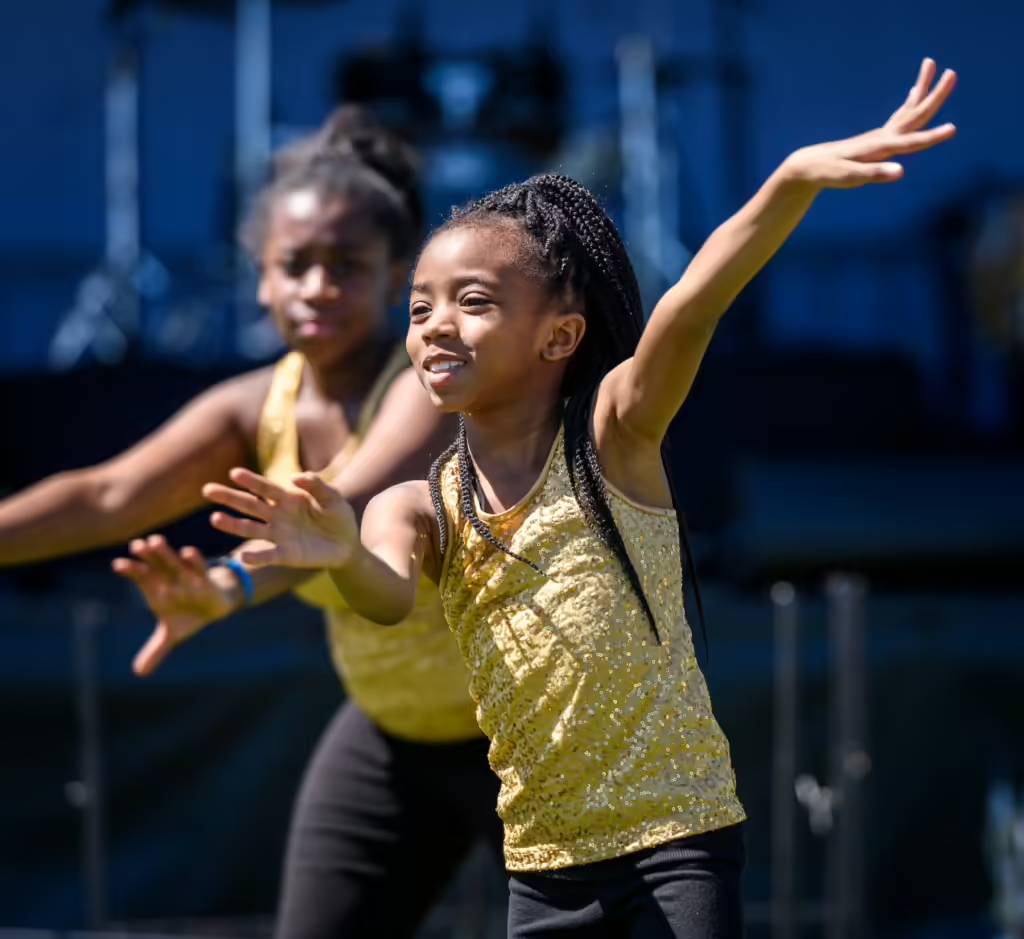
Collaboration and Innovation
Collaboration has been a critical driver of the 11th Street Bridge Park project’s success. The project regularly partners with the District of Columbia government to pilot and scale innovative strategies. For instance, the team helped stand up the Douglass Community Land Trust, which included creating a community advisory board, raising millions for early property acquisition, and setting up a separate non-profit. “We spent three years standing up the Douglass Community Land Trust, a key request by local residents to put decision-making power back in the hands of local residents.”
Addressing Critical Needs
During the pandemic, the Bridge Park team demonstrated its commitment to addressing critical community needs. Partnering with three place-based non-profits, the Bridge Park launched the largest privately funded unconditional cash transfer program ever attempted in the U.S., distributing $5,500 each to over 650 families, weekly groceries, and monthly dry goods. This initiative provided crucial support during an unprecedented crisis based on the premise to trust the community to make their own decisions.
The Power of Trust
The journey of the 11th Street Bridge Park is deeply rooted in trust. By placing decision-making power in the hands of local residents, the project has built a strong foundation of trust and ownership. “Change moves at the speed of trust,” reflects Scott. The community’s input shaped every element of the park, from its programming to its design. This collaborative approach ensures that the park meets residents’ needs and fosters a sense of ownership and pride.
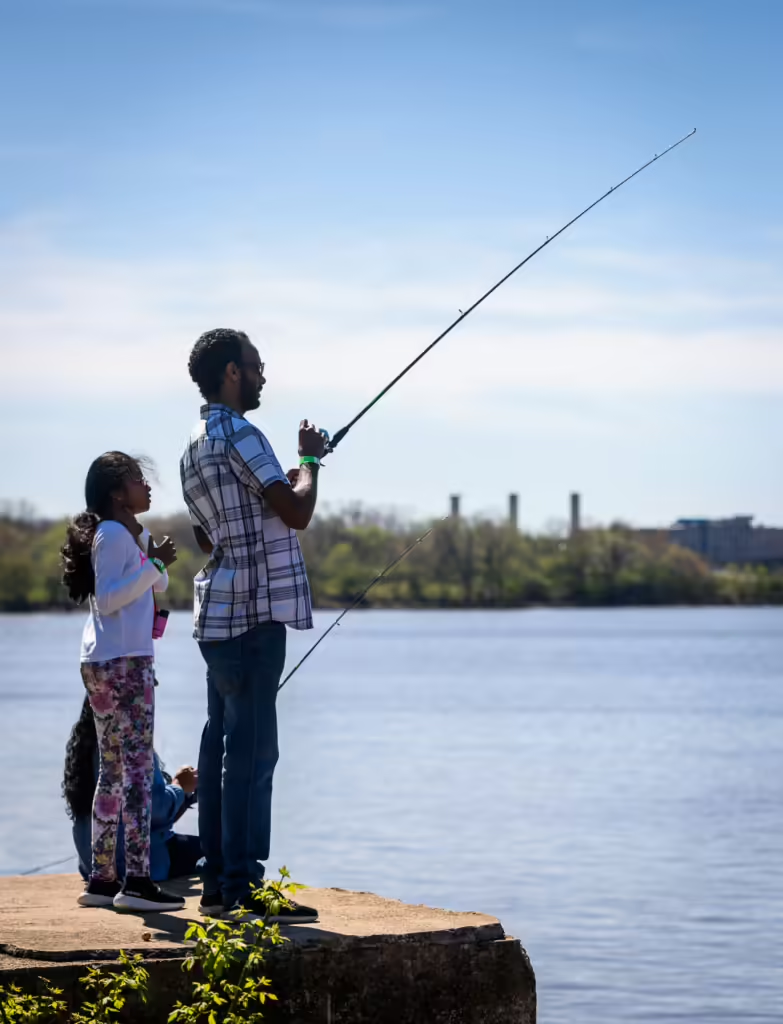
A New Landmark for Washington, D.C.
Located on the piers of the old 11th Street Bridge, the park will serve as a vibrant space for recreation, environmental education, and the arts. Bound by the Washington Navy Yard on one side and the National Park Service’s Anacostia Park on the other, the Bridge Park will be a destination for some, a pedestrian or bicycle route for others, and for the city, an iconic new archway across the Anacostia River. The park’s design, developed through extensive community input and collaboration, includes various features that cater to diverse interests and needs.
National Impact and Recognition
The innovative approach of the 11th Street Bridge Park has garnered national attention. The project advises nearly a dozen similar initiatives across North America, from Dallas to Toronto. These projects are learning from the Bridge Park’s strategies to build their own anti-displacement plans and foster community resilience. “We are currently advising nearly a dozen similar projects across North America on how to build their own anti-displacement plans,” Scott explains.
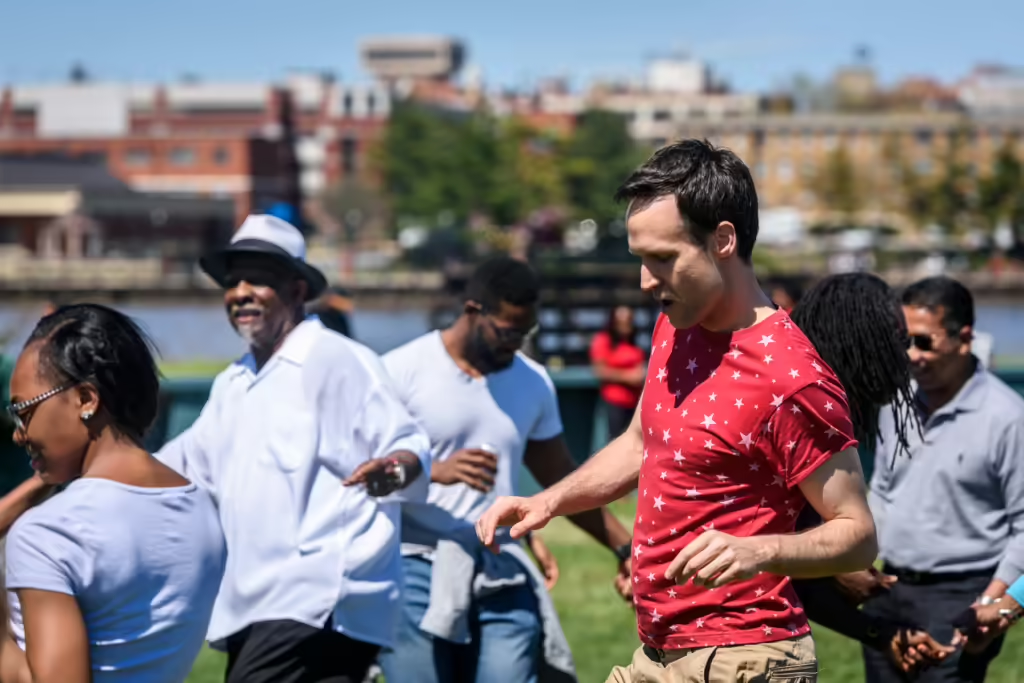
Looking to the Future
The excitement is palpable as the 11th Street Bridge Park moves towards its public opening in the first half of 2027. “After ten years of working with residents at every step, we are breaking ground later in 2024. We can’t wait to walk across the Bridge Park in a few short years and realize the community-driven vision,” smiles Scott. The park promises to be a space where residents from all walks of life can come together, connect, and thrive.
A Message of Hope and Unity
Scott’s message is one of hope and unity. “Martin Luther King Jr. instructed us to build bridges, not walls. Let’s think big. Act with intention. Put the community at the center. You will do great things,” he says. This ethos is at the heart of the 11th Street Bridge Park, a project that embodies the power of community, collaboration, and innovation. The 11th Street Bridge Park is transforming not only the physical landscape but also the social and economic fabric of Washington, D.C. By fostering equity, inclusivity, and collaboration, the Bridge Park is creating a model for community-driven development that can inspire other cities and communities. As the project progresses, it promises to be a space where residents can come together, connect, and thrive, building a brighter, more inclusive future for all.
